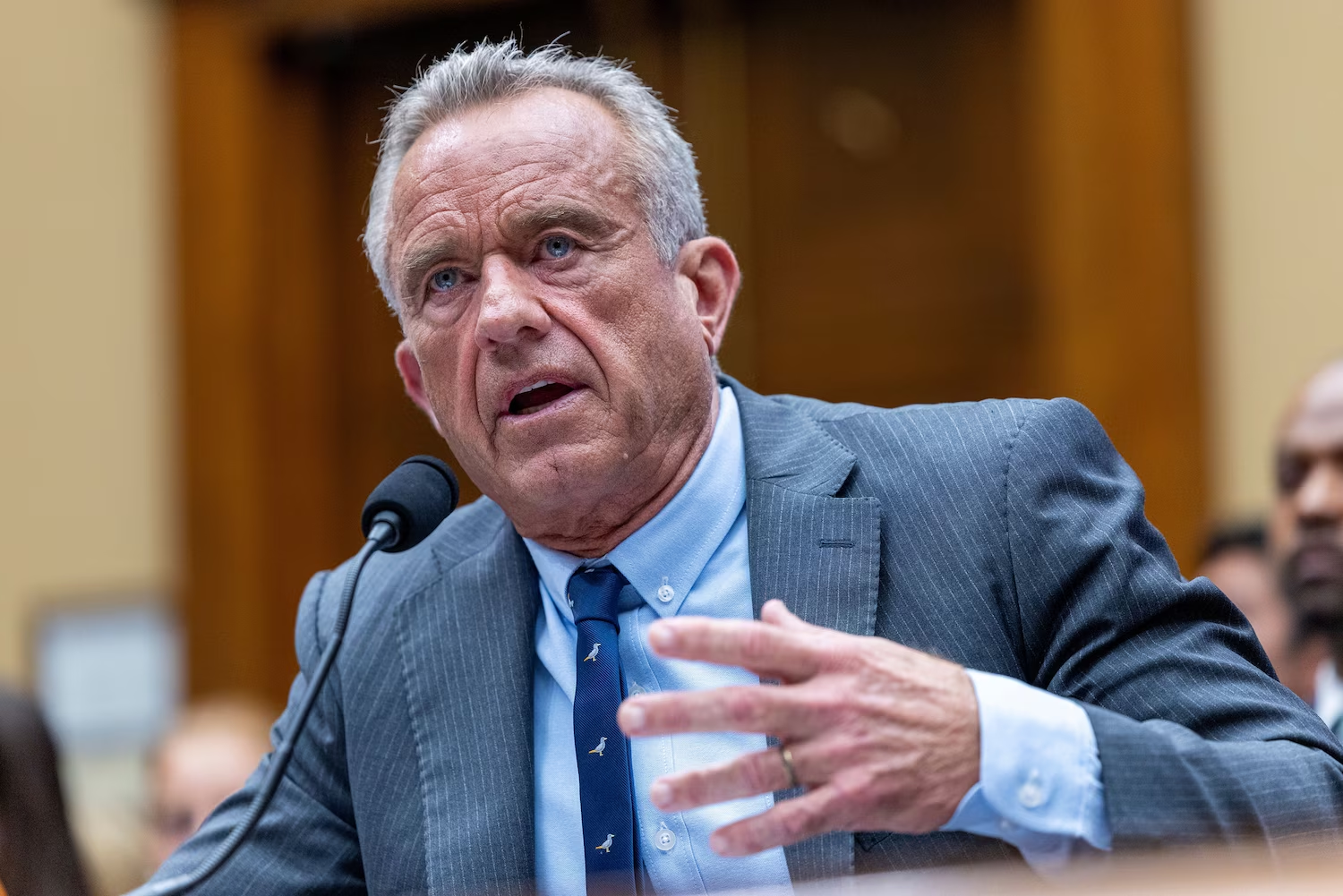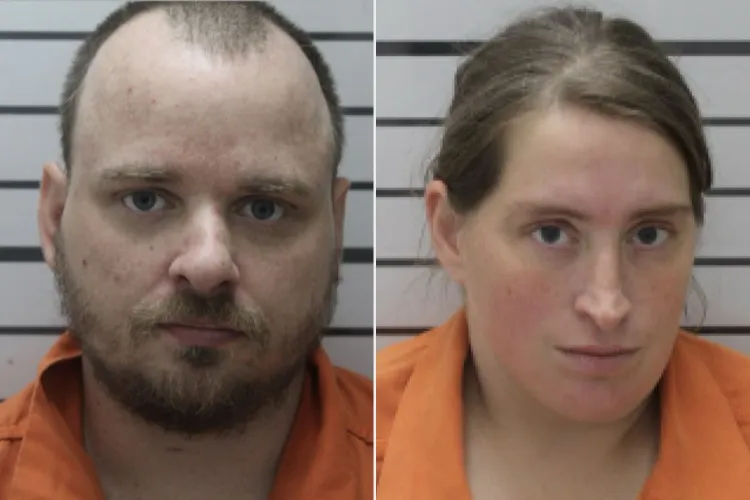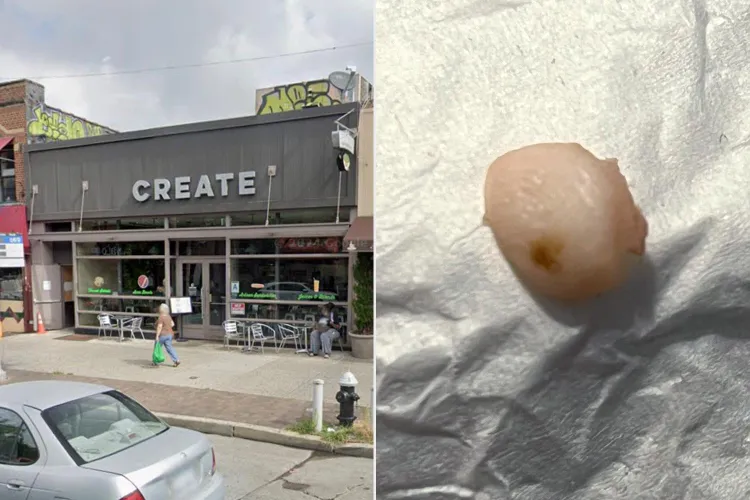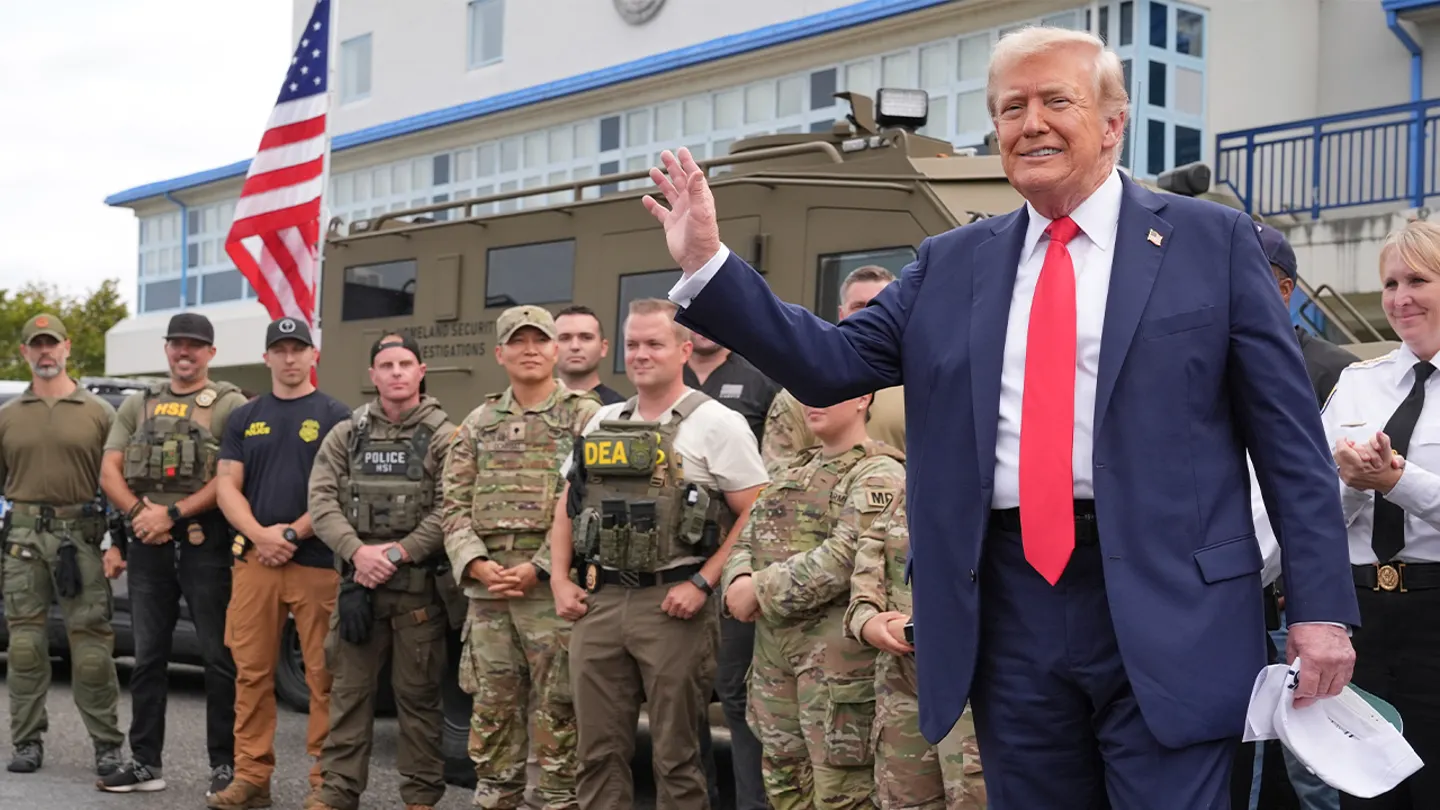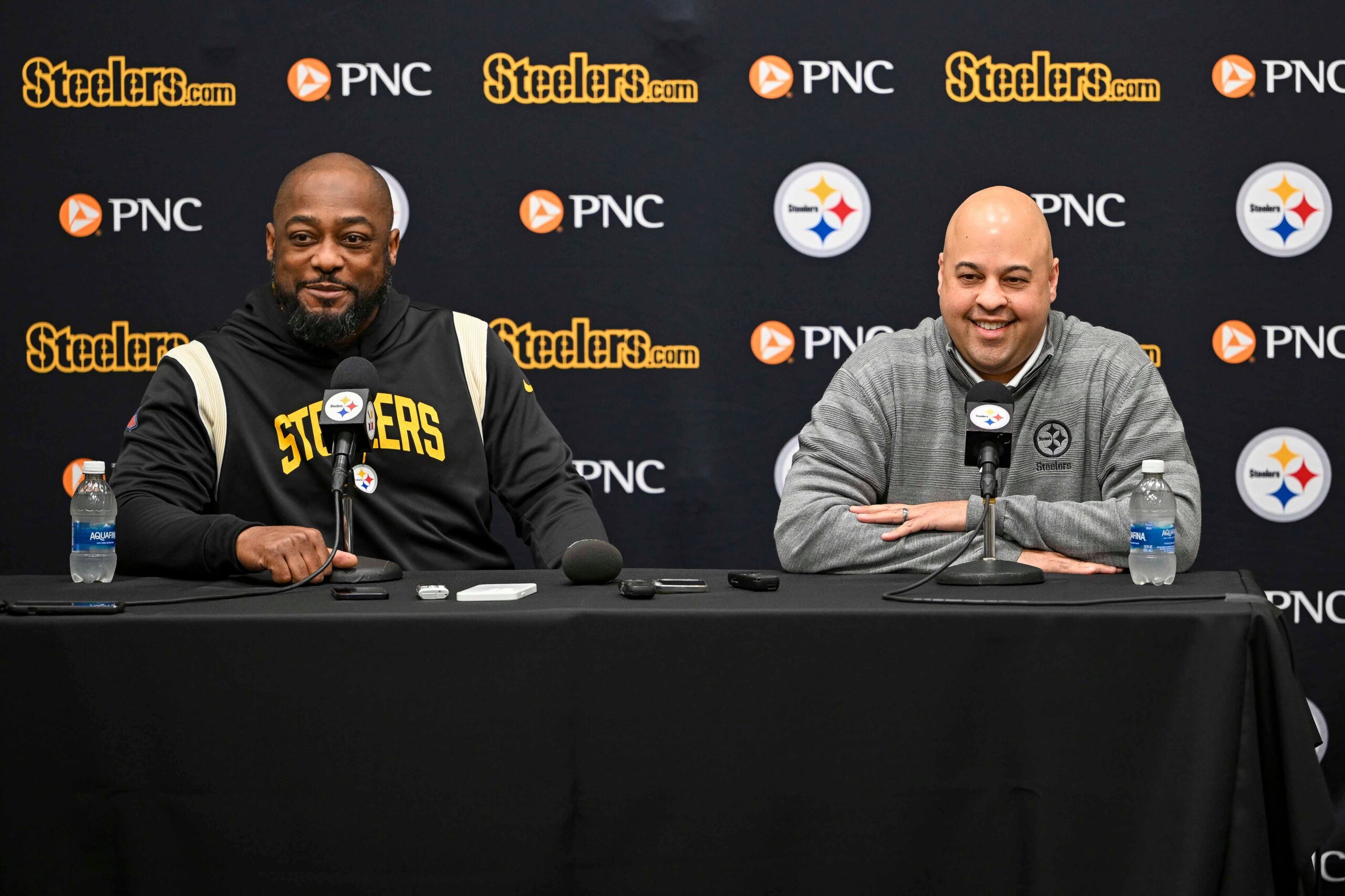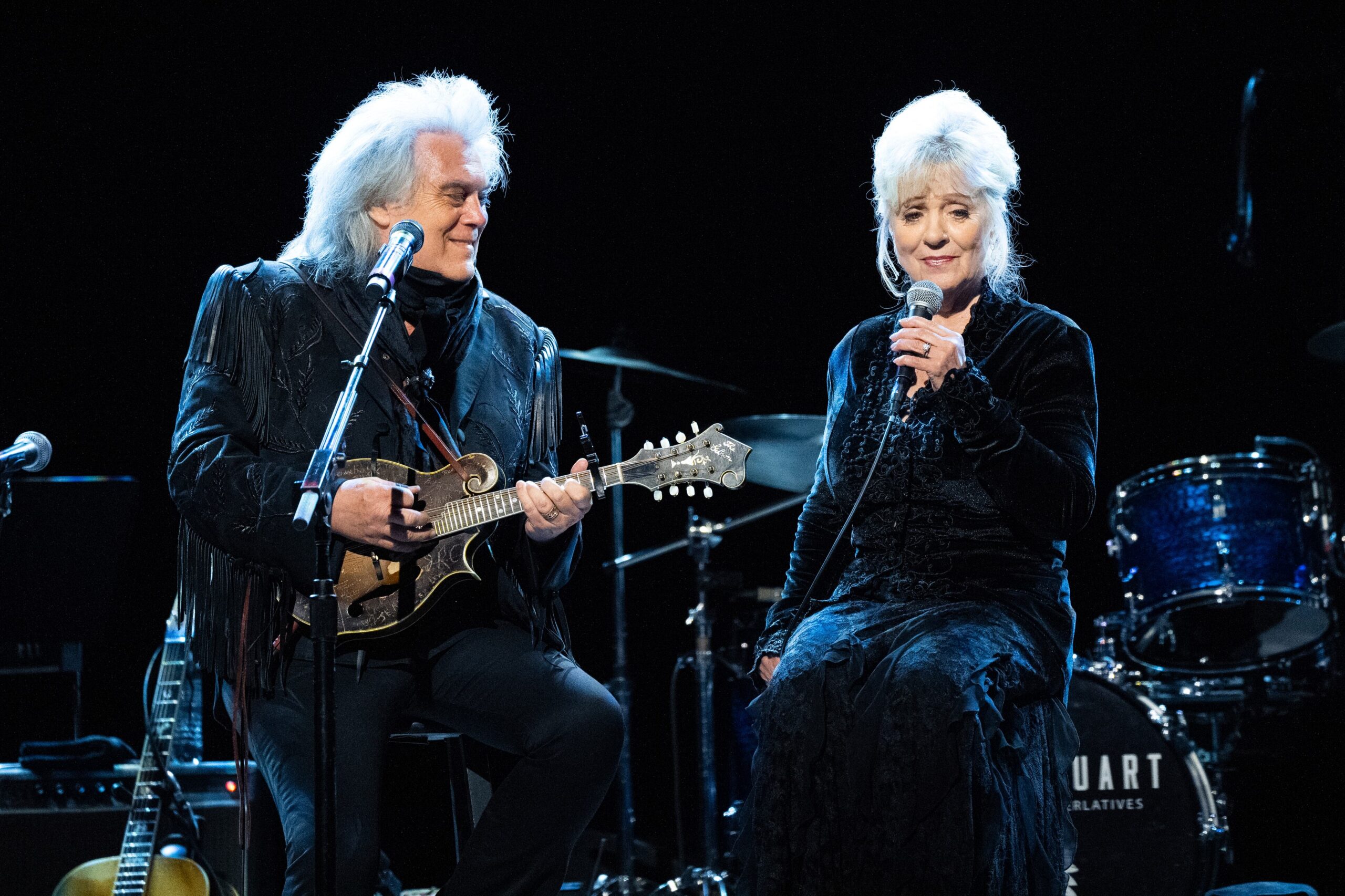The disastrous mRNA vaccination announcement exposes a dysfunctional and infighting health department.
The Department of Health and Human Services (HHS) was canceling approximately $500 million in mRNA vaccine research across 22 contracts managed by the Biomedical Advanced Research and Development Authority (BARDA), according to a two-minute video posted by Robert F. Kennedy Jr. on X on the evening of August 5.
Kennedy had been at a USDA farmers market earlier that day, peddling a stationary bike to power a blender for a blueberry smoothie at the National Mall. By evening, he was in Anchorage, Alaska, where he was meeting with tribal health leaders and going salmon fishing as part of his Make America Healthy Again (MAHA) tour.
The declaration was met with intense opposition from scientists and public health specialists while Kennedy was in Alaska. What ought to have been a landmark moment during Kennedy’s first year at HHS—fulfilling his pledge to ban vaccines that he had long deemed harmful—turned into a PR catastrophe. Kennedy enraged nearly all of his allies during the week, including the White House, MAGA, MAHA, and his own agency.
After reviewing the science and hearing from the experts, we took action. Because the research indicates that 22 mRNA vaccines do not provide good protection against upper respiratory diseases such as the flu and COVID, BARDA is ending its funding in their development. That money will now go to pic.twitter.com/GPKbuU7ywN.
Kennedy asserted in his video—without citing any supporting data—that mRNA vaccinations had not been effective in preventing upper respiratory infections. “We looked over the science, heard the experts, and took action,” he stated.
However, the decision was not well prepared for within HHS. Several current and former HHS officials, speaking anonymously, said the announcement was made without a communications plan, information sheets for staff or the White House, or specialists to explain the decision to the public. According to insider reports and interviews, the statement exposed serious dysfunction at the agency, which is having difficulties under Kennedy’s direction.
“It was unexpected,” one official stated.
Supporters of MAGA and MAHA were left perplexed. Serious repercussions were forewarned by experts: former BARDA director Rick Bright cautioned that the move might cripple our front-line defense, while former Surgeon General Jerome Adams stated it could cost lives. Don’t Abandon mRNA was the title of an editorial published by the Trump-friendly National Review.
Kennedy’s failure to further criticize mRNA vaccinations, as he had pledged during the campaign, infuriated several MAHA supporters. The White House, however, appeared unprepared. President Trump said, “Research on what?” when asked about the choice. and thereafter stated, We’ll examine that At twelve o’clock tomorrow, we have meetings to discuss it.
Kennedy’s HHS is unique. Numerous leadership positions that were previously occupied by seasoned public health professionals have been occupied by fringe advisors, Trump supporters, and anti-vaccine activists. These assistants oversee the reaction to disputes.
Gray Delany, an MAHA supporter who was employed in June to work with MAGA media and the MAHA movement, was left to do damage management while Kennedy was still in Alaska. Delany collaborated with former Trump adviser Dr. Steven Hatfill to organize media appearances, create information sheets, and mobilize MAHA members. Hatfill asserted on Bannon’s War Room that the decision was supported by a 181-page list of papers that demonstrated the extensive harm caused by COVID vaccinations, a list that was heavily disputed by specialists.
Let’s get in shape and restore health to America.image.twitter.com/W56AlOj63S
Internal discord resulted from the response. After just 52 days, Delany was let go, allegedly due to Stefanie Spear, the principal deputy chief of staff, losing faith in him. HHS, according to critics, disciplined the lone employee who attempted to coordinate a cohesive response.
Kennedy messaging, meanwhile, kept changing. NIH director Jay Bhattacharya disassociated himself from assertions that mRNA vaccines were lethal by August 9 and explained the choice as a matter of timing, stating that while the technology showed promise, it was not yet suitable for widespread use. Kennedy expressed support for public health employees and his sorrow for a CDC officer who was shot and murdered that same day.
The chaos at HHS persisted. The Advanced Research Projects Agency for Health’s (ARPA-H) chief data officer, Alastair Thomson, resigned after claiming that the mRNA decision was wholly at odds with the data and that it endangered the field’s future.
In an opinion piece published in The Washington Post on August 12, Bhattacharya claimed that the vaccines failed a critical test because people did not trust them, not because they were dangerous. The HHS justifications changed many times during the week: Kennedy claimed the vaccines were useless, Hatfill claimed they were harmful, and Bhattacharya claimed they were not politically feasible.
None of the justifications were supported by credible scientific data, exposing a department run more by ideology and inexperience than by facts. They must get their act together, as one HHS official put it.
